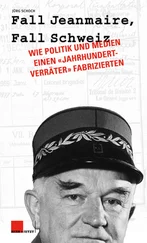She first checked her handscreen for a while, then put it away and simply watched the streams of people through the clear partition that separated the tables of the tea stall from the mall corridor, her expression difficult to read, neither bored nor wistful nor in any way intrigued. And yet there was something about her in that moment of regard that gave us pause. She was quite enrapt, we were certain, even as her face remained almost totally blank, just as a drinking glass remains unchanged when filled with water but of course is not at all the same.
For we know the moment, too: to have given over to the full onrush of a feeling, to have ridden up the wall of the curl and maybe, if we’re reckless or brave enough, done the deed, essentially turning our insides out. And for a period — this young woman’s lasting perhaps a few weeks — heady with the rich feed of new and unexpected hopes, we make a whole world of that feeling, such that we can hardly imagine how it was before, or could ever be again, so that the smallest things we say or do seem touched with a destined aura. We connect with you who lingers in our path. We forget that every fervor will subside.
The young woman paid her bill and left, and as she stepped on the escalator rising to the street level, someone said loudly enough for her to hear, What about Fan?
She turned and looked about, unsure as to who had spoken. She looked suddenly so stricken and wan, as if her very conscience had leaped out from her chest and cuffed her. The escalator delivered her to the top and she glanced about nervously before scampering away.
It was awful, for someone to have singled out this poor soul, this girl who had only enacted with earnestness and the wonder of a pup those things we couldn’t bring forth or otherwise contrive for ourselves. We must picture her as feeling hounded all the way home, passing the old-timers in the parlor without even her usual blithe Hey, ba, going up to the room she shared with two sisters but who were fortunately away and with unknowing irony doing just as we do in our secret night, our heads gravely cradled, towing rough fingers through the strands.
So what about our Fan? What was her disposition as she stood on the new street the bulldozers had graded between the houses and filled with gravel, bawdy-storied crews having installed drainage and laid out the formwork for the sidewalks? Betty had instructed the architects to consult Fan whenever possible, telling the almost identically dressed and spectacled trio (two men and a woman) that what it felt like out here was as important as in any room of the houses. This is where Josey and the twins and their cousins and their pals would spend much of their most cherished time, racing about, as Fan had described, in a game of tag using the stoops as safe bases, or playing soccer with the curbs as sidelines and ragged grow-house jumpsuits dropped down as goals, or simply sitting enervated beneath the mean summer glare, squinting and dry mouthed, waiting for the ice cream man to putter by on his three-wheeled scooter with its rear icebox full of treats (there was no such vendor here in the Charter but certainly one could be arranged). It was all being knit together before Fan’s eyes, its imminence convincing her at least of the generous vision and spirit of these newfound kin, and perhaps engendering something deeper in her, too, those feelings none of us who are truly living can always master and which thus grace us, if also leaving us vulnerable.
It turns out, though, that Fan was more vulnerable than she could know. For Oliver was indeed taking all his colleagues’ calls, and calling them all back, and then pushing to be referred to others who might be better positioned and connected to those who might actually know something. At first it was squarely annoying how difficult it was to find out almost anything about this Reg, by every account a thoroughly ordinary low-level facility worker, Oliver’s frustration in fact boiling over during a call to a lab friend, when in an arrogant fit of pique he accused the fellow of indolence for not coming up with more useful results. But soon enough, as it grew clear how the channels of his always reliable school and medical network were seemingly being blocked, Oliver became intrigued. The more resistance or obfuscation or dead-ending he encountered, the more it sparked his mind with a deepening fascination, a fascination that soon altered his approach, such that he saw the problem as one of not just exerting pointed social pressures or unpacking certain linkages but embracing the phenomenon of a complex and special aberration, upon which he would apply the force of his research methodologies, structuring and casting his inquiries to probe certain notions and to isolate and test corollaries to see how they led back to a former line or else suggested a new one.
He mentioned none of these activities to Fan, in part telling himself that to do so without a ready or even provisional means of finding Reg would be irresponsible, and maybe downright cruel (despite the fact that he admired Fan for being Fan, which is to say the kind of person who would keep the right perspective on such qualified information). The other part was less generous; for soon enough, one of these lines, Oliver concluded, confirmed at least this: that while really no one could or would say where this Reg was, including someone very high up in the directorate, it was clear he’d become a primary object of curiosity for the very pharmacorp that was buying Asimil. This made perfect sense, if what he was now hearing back about the boy was true. There was Asimil and there was Reg; a life of serial therapies, or maybe none at all. The former would be astronomically expensive. But which was actually more valuable in the end? If he were running the pharmacorp, he would be running the numbers, having it penciled out, but regardless he’d want Reg in his hands, for sure (he’d easily confirmed that both his parents had died of C-illnesses and that Reg was an only child), to determine what in his makeup was leading people to believe he was C-free forever, although how, without his whole life having been lived and studied, could you ever be certain? Maybe you’d have to keep him forever.
Another week or so went by. By now the hardscape was completed, the sidewalks set and lined with granite curbing, and the roadway paved in the same light gray hue of our very own streets, and then laced with just enough mica to emit the slightest glitter. The young gingko trees were planted and staked. In fact, they decided not to roll out much sod on the double property but instead put in a large playground for all the children of the neighborhood to use, even if there weren’t that many. Oliver had a street sign made up and affixed to the top of a black-painted steel gaslight post set at the head of the drive, the old-style letters embossed and hand-painted: Betty’s Lane. Inside, the houses were nearly completed, with the installation of cabinetry and appliances and electronics and the finishes of the floors. All the rooms had already been painted or papered, the bedrooms laid in with carpeting.
Fan’s rooms in her bay’s three floors — all twelve of them, not including the baths — were painted in white. As with the other rooms in the houses, Betty had multiple scenarios for various beautiful and elegant color schemes for her walls and trim from which to choose, a mix of paints and wallpapers, curtains and rugs and throws, but Fan asked to have it done in plain white, the default, bulk white paint contractors used in the service people’s dorms and public restrooms, which was the same white paint the originals in B-Mor had been given truckloads of long ago and that we never stopped using. She chose it for the sake of familiarity but also because the selecting of all those very particular colors seemed to her a tacit acceptance of a future in which she could not quite promise she would be.
Читать дальше












